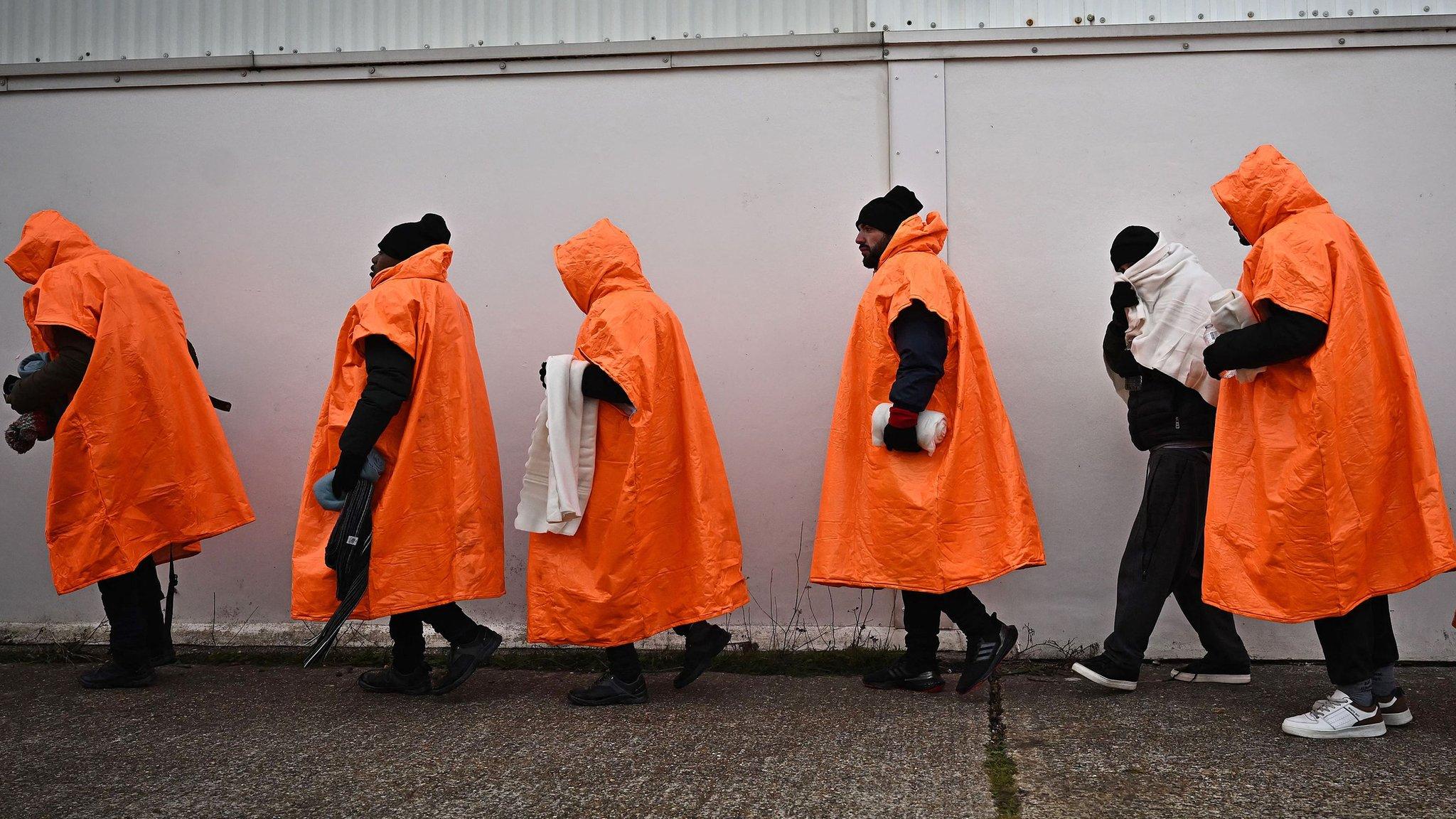Tory MP calls for minister to go over asylum hotels
- Published
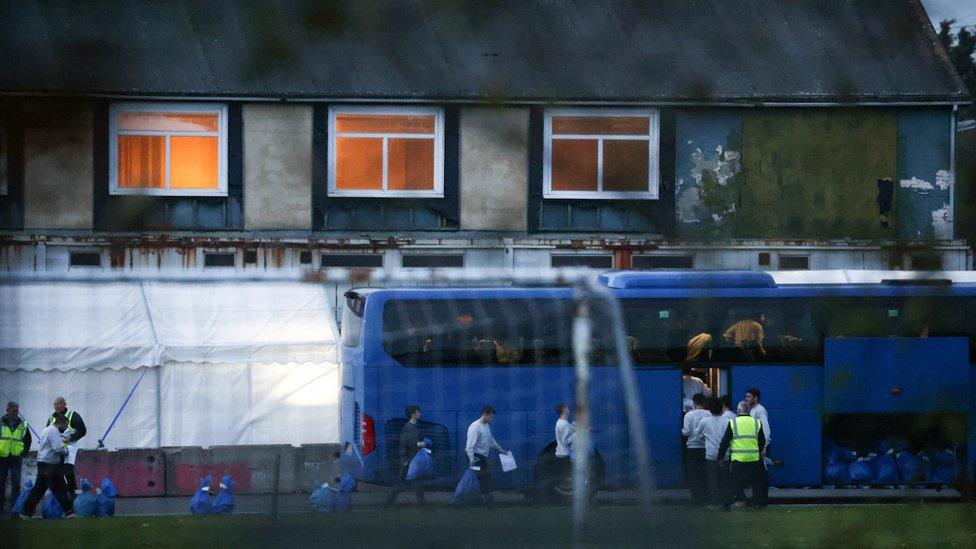
Asylum seekers are often transferred from migrant processing centres to hotels while they wait for a decision on their claim
A Tory MP has called for Minister Robert Jenrick to "consider his position" over the "chaotic" situation with hotels housing asylum seekers.
Philip Hollobone, MP for Kettering, said it was unacceptable his council was given no notice of asylum seekers being moved into a hotel in the area.
Another Tory MP, Henry Smith, called on the Home Office to "get a grip".
Mr Jenrick said councils should be given at least 24 hours notice of asylum seekers arriving in their area.
The immigration minister told the Commons that overcrowding at the Manston migrant processing centre in Kent meant his department had to secure alternative accommodation "at extreme pace".
However, he said in some cases the Home Office had failed to properly engage with councils and MPs.
"I have been clear that this is completely unacceptable and that this must change," he added.
Mr Jenrick said he had sent a letter to MPs setting out minimum requirements, including notifying councils and MPs when hotels had been selected in their area no less than 24 hours before asylum seekers arrived there.
During an urgent question in the Commons, Mr Hollobone said his local council had raised concerns about the use of a hotel in the area because of mould and a lack of kitchen facilities.
He said the local police force had also raised "serious concerns" about community safety and the vulnerability of asylum seekers.
He said the Home Office and contractor Serco had agreed the hotel would not be used until the issues were addressed.
However, he said that on Tuesday the council were told 41 asylum seekers had been moved into the hotel on Sunday "without any notification at all".
"It is totally, 100% unacceptable," he said.
"This is a wrong-headed decision, the local police, the local council and I have been misled and I have no confidence at all that the Home Office, Serco or the minister himself have the first clue of what they are doing in relation to this asylum seeker relocation."
In response, Mr Jenrick said: "I will be happy to make some inquiries and come back to [Mr Hollobone]."
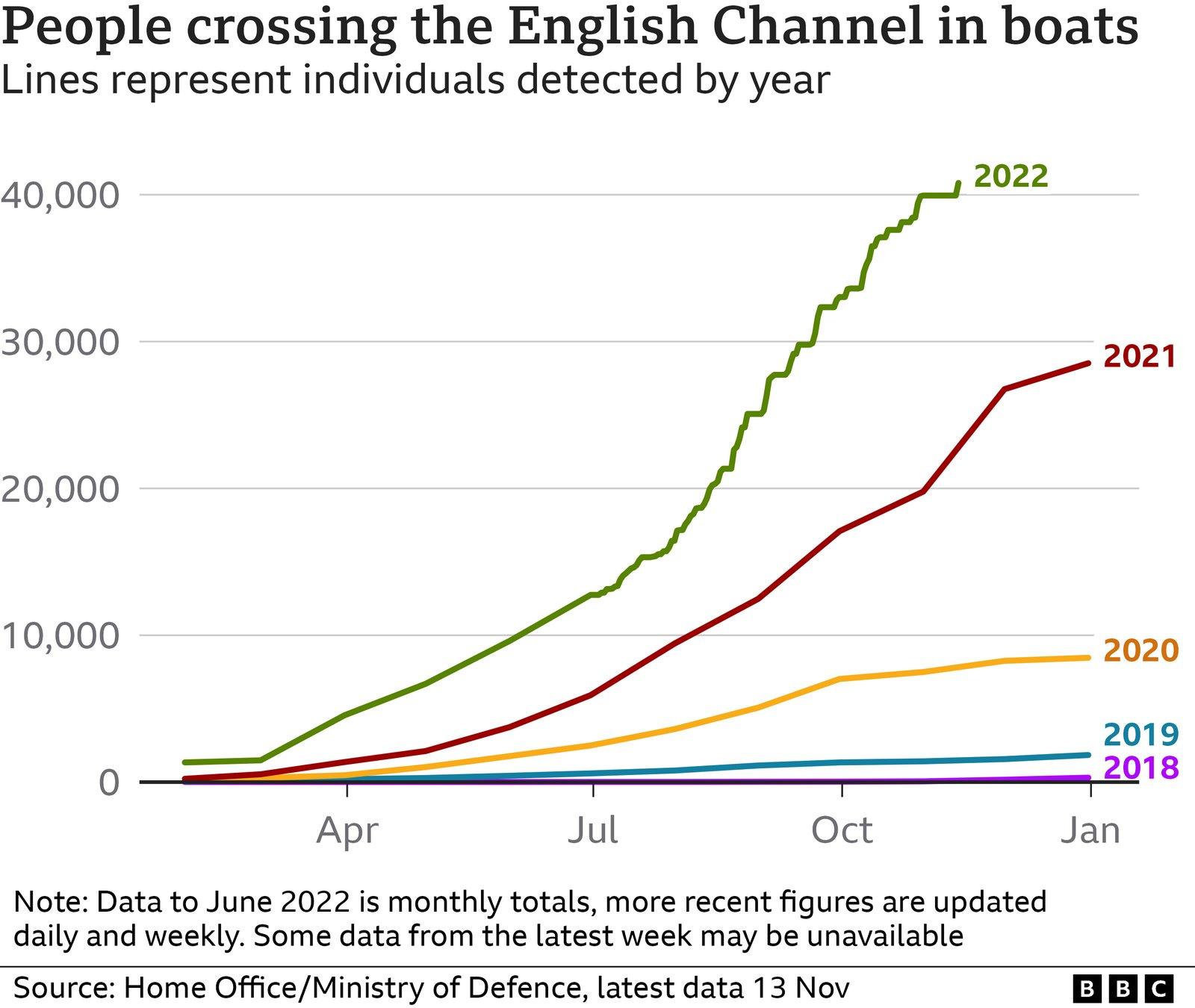
Tory MP for Clacton, Giles Watling, who asked the urgent question, said 24 hours was "an inadequate timeframe" to be given notice of a hotel being used to house asylum seekers.
Another Tory MP, Henry Smith, called the Home Office "dysfunctional" and asked when it would "get a grip and deal with the core problem that this government has caused".
He said a significant number of hotels in his Crawley constituency had been used to house migrants and this was starting to cause "community tensions".
Mr Smith added that there was also an impact on businesses, with one hotel booked out until July 2024.
Meanwhile, Labour MP Dame Diana Johnson said asylum accommodation was "concentrated in poorer, cheaper areas" as contractors sourcing housing were "only interested in the bottom line".
Mr Jenrick agreed it did appear some parts of the country were "bearing a disproportionate burden" and said there needed to be "fairer" distribution of accommodation.
He said the government had not caused the underlying issue and instead blamed the "thousands of people who are crossing the Channel illegally" for "putting immense pressure on our asylum system".
But Labour's shadow home office minister Stephen Kinnock said problems with the immigration system were of the government's "own making".
He said using less experienced asylum decision-makers on lower wages was leading to slower decisions and an increasing backlog.
Earlier, Home Secretary Suella Braverman admitted the UK government had failed to control its borders and the Home Office needed to improve its efficiency.
However, she said the blame for the problem lay with people smugglers.
More than 40,000 people have crossed the Channel in small boats so far this year - the highest number since figures began to be collected in 2018.
This has contributed to overcrowding at the Manston processing centre, which at one point earlier this month was holding around 4,000 people - more than double its capacity.
The centre has since been cleared of people, after ministers sought to move people to hotels or other accommodation.
- Published23 November 2022
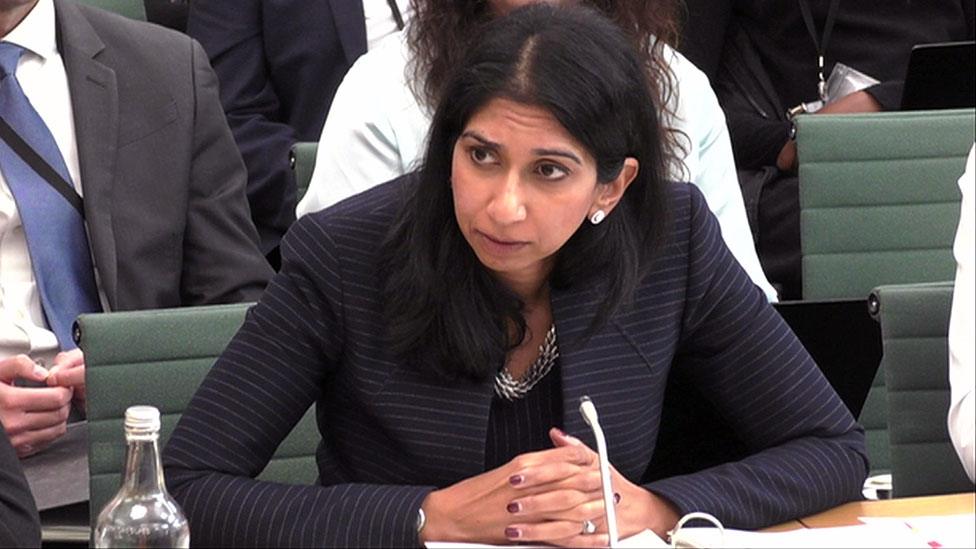
- Published16 November 2022
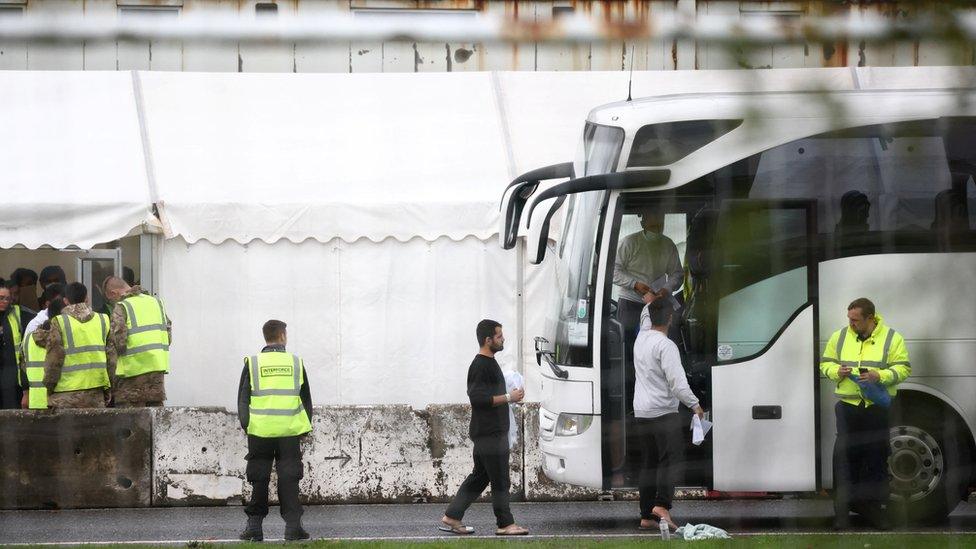
- Published22 November 2022
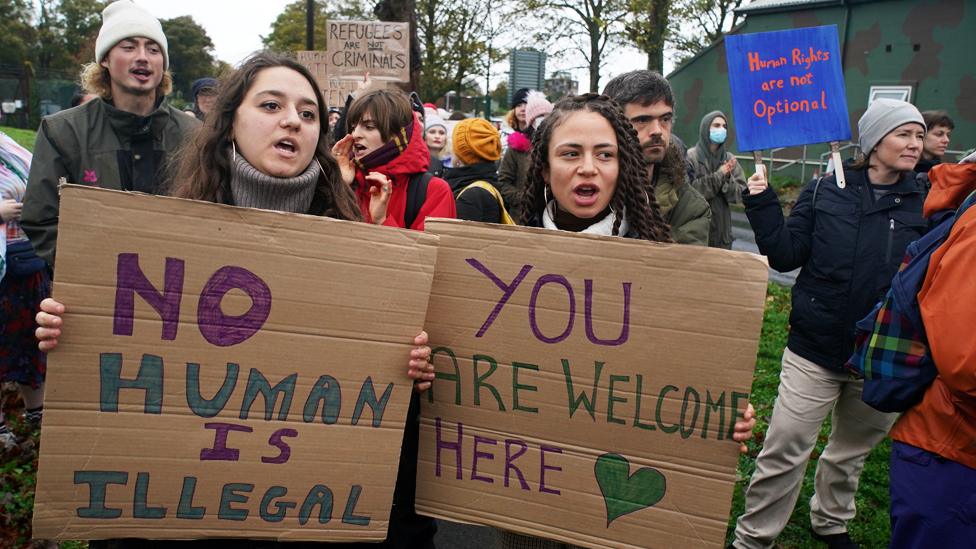
- Published1 November 2022
- Published13 December 2023
